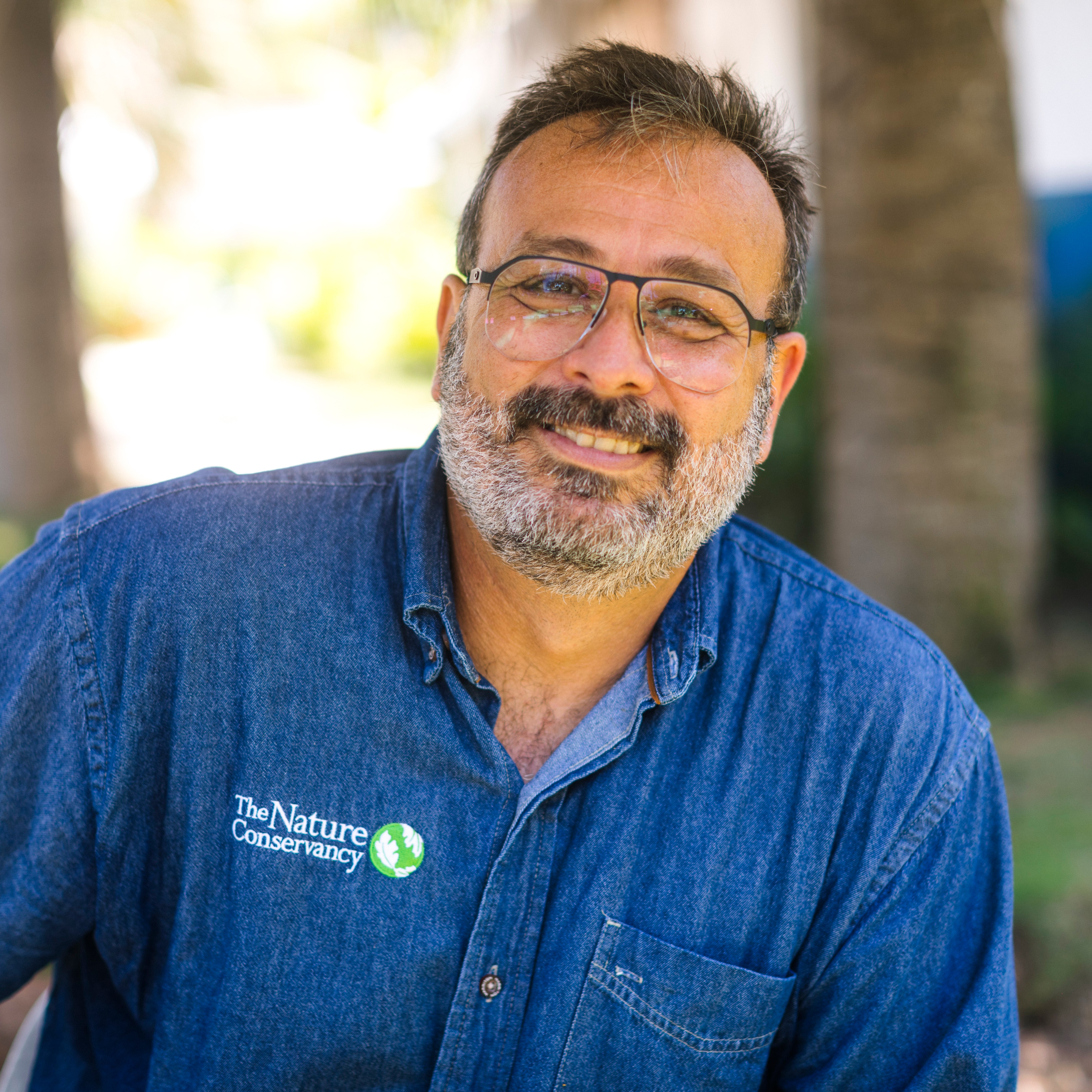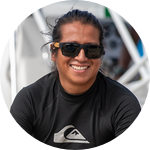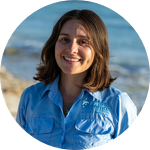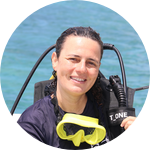Project Results
MONITOREO DE SALUD ARRECIFAL Santuario Marino Arrecifes del Sureste (SAMAR) Zona Sur 2025
Fundación Dominicana de Estudios Marinos
Other
About This Project
Caribbean marine biodiversity is under critical threat from climate change and human pressures, losing >40% of coral cover recently to bleaching in Dominican Republic. The MARE-RD Project integrates AI and automation to streamline data analysis, providing real-time insights and early warnings. By optimizing decision-making and fostering collaboration, this tool supports effective marine conservation, addressing rapid changes and safeguarding ecosystems and livelihoods.
Ask the Scientists
Join The DiscussionWhat is the context of this research?
The Caribbean's marine biodiversity, one of the richest in the world, includes coral reefs, mangroves and seagrass beds, essential for thousands of species and coastal protection. However, they face serious threats: in 2023, the Caribbean suffered the strongest thermal stress event due to climate change, causing massive coral bleaching and mortalities. In southeastern Dominican Republic (DR), >40% of coral cover has been lost due to disease and bleaching. This affects biodiversity, fishing, tourism and coastal protection, increasing vulnerability to disasters of island nations like DR. FUNDEMAR has a long reef monitoring trajectory, but faces challenges in processing and publishing data in a timely manner to inform authorities and stakeholders to decide proper management and restoration decisions. FUNDEMAR currently co-manages the southern part of the Southeastern Reefs Marine Sanctuary (SAMAR), identifying the need of real time data to face rapid ecosystem changes.
What is the significance of this project?
The MARE-RD project will significantly enhance marine resource management in MPA's like SAMAR in the Dominican Republic and the Caribbean. By providing real-time data access, decision-makers can respond swiftly to environmental challenges, improving marine ecosystem health. The Dominican Republic has a strong history of coral monitoring and restoration, with internationally recognized results. Unfortunately there is a lack of local capacity and time to analyze data properly and on-time. MARE-RD will centralize national monitoring data to guide conservation and restoration efforts in real-time. In the long-term, these actions aim to positively impact ecosystem conservation and bolster the resilience of coastal communities.
What are the goals of the project?
The MARE-RD Project aims to promote the adoption of nature technology through the creation of a tool that automates the analysis and presentation of data obtained both through field and remote monitoring, and using artificial intelligence (AI) to the extent possible. This tool will be designed to optimize management and decision-making processes for marine ecosystems, especially in a context of accelerated environmental changes.
Budget
The items listed in the budget will aid in developing the MARE-RD tool to input, analyze and showcase marine ecosystem monitoring results in real time.
MARE-RD is part of a larger national coastal-marine ecosystem monitoring program, MONITOREA, financed by the French Embassy and first implemented in 2024, producing a monitoring guide that takes into account the interconnectivity of reefs, seagrasses and mangroves. Over 72 young scientists and partners were trained on ecology, experimental design, analysis and ecosystem health monitoring. MARE-RD will support the long-term sustainability of MONITOREA by streamlining data entry and analysis during the monitoring of 15 localities throughout the Dominican coastline.
Endorsed by
 Project Timeline
Project Timeline
The project seeks to develop and operationalize a tool that allows obtaining ecosystem health information in real time for effective management of marine resources in the Dominican Republic. The steps for the implementation of the project are as follows
Jan 15, 2025
Project Launched
Jan 31, 2025
Hire expert consultant to conduct a needs analysis based on established ecosystem health indicators.
Feb 28, 2025
Complete training sessions for key personnel to effectively create, monitor and manage the MARE-RD tool.
Mar 15, 2025
Identify and select the software required for integration into the MARE-RD tool.
Mar 31, 2025
Design and generate matrixes or forms with data validation that are compatible with selected repositories and software.
Meet the Team
Team Bio
The team includes an Executive Director (MSc Env. Management) ensuring partnerships and program sustainability, two Scientific Advisors (PhDs Ecology) supervising design and ecosystem health indicators, a Research Manager (MSc Ecology) leading data analysis and tool training, a Research Assistant ensuring data validity, and a Biodiversity Manager organizing logistics and training. Supported by 8 staff and 15 trained technicians, they ensure robust field data collection and analysis.
Maria Villalpando
Maria Villalpando earned her Bachelor of Science in Ecology, Evolution and Behavior from the University of Texas and her Master in Ecology focused on animal conservation at the University of Bern in Switzerland, investigating the distribution, population structure and modeling the occurrence and abundance of the endangered coral species, Dendrogyra cylindrus, in southeastern Dominican Republic to promote its local conservation. She has been working with the Dominican Foundation for Marine Studies (FUNDEMAR) since 2017, and serves currently as Research and Development Manager, coordinating the scientific programs of FUNDEMAR, including marine mammal, coral reef, seagrass bed and mangrove monitoring, reef restoration programs and research projects, focusing on the asexual and sexual reproduction of corals as a reef restoration strategy, having the opportunity to train and collaborate with leading scientists and professionals on the topic in the Caribbean to incorporate technology and innovations. Maria has co-authored over 10 scientific publications with FUNDEMAR, has helped redact manuals for coral assisted reproduction and ecosystem monitoring and annually publishes the coral spawning prediction calendar for the Dominican Republic.
Rita Ines Sellares Blasco
CEO of the Dominican Foundation for Marine Studies (FUNDEMAR), Master in Environmental Management (EUDE, Spain). Graduated in Marine Biology from Farleigh Dickinson University (United States) and in Marine Sciences (University of Cádiz, Spain). With over 20 years of experience in the conservation of ecosystems and marine biodiversity in the Caribbean. Under her leadership, FUNDEMAR programs have been consolidated, achieving their sustainability and scaling over time, integrating sustainable community programs with nature-based solutions, elaborating and developing projects for the conservation of marine resources in the Dominican Republic, among which are the 1st reintroduction of manatees in the country, the 1st national census of manatees using combined technology (drones and airplane), and the 1st assisted coral fertilization laboratory positioning Dominican Republic as the country with the highest production of coral recruits in the Caribbean through assisted fertilization and thanks to established international alliances (SECORE Int. Coralium, TNC). She has also contributed to science in the country through various studies, national and international training, and the publication of 23 research papers. In 2009, she created FUNDEMAR's Center for Coastal Marine Studies and in 2023 she redesigned and obtained funding for the construction of new facilities part of the country's Marine Innovation Hub. She has successfully implemented international cooperation projects (Germany, Costa Rica, Honduras, Cuba, Jamaica, Haiti, Colombia, Mexico, Curaçao, United States and Bonaire), grants from the Caribbean Biodiversity Fund (CBF), United States Agency (USAID), Inter-American Development Bank (IDB), United Nations Development Program (UNDP), The Nature Conservancy (TNC), IKI, CORDAP, Ocean Kind, German Embassy, French Embassy, private donors and others.
Project Backers
- 13Backers
- 100%Funded
- $8,000Total Donations
- $615.38Average Donation



